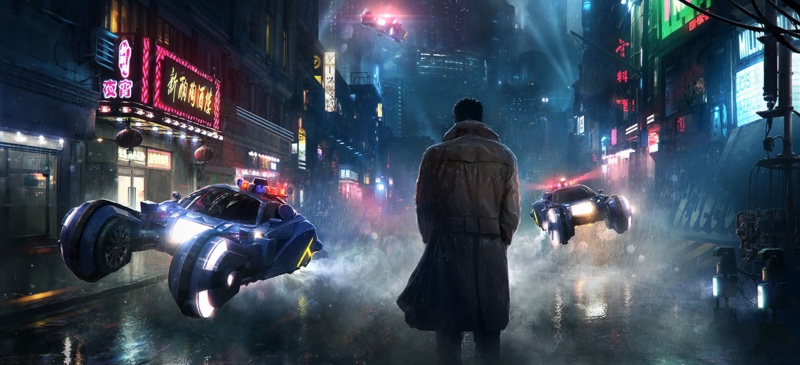My debut science fiction novel, Presence, is now available on Amazon. Why did I write a novel this time, and not a nonfiction book? Because I believe science fiction (SF) is an under-utilized tool for examining the impact of new technology. So in this article, I’d like to explain more about how science fiction can help you understand technology and its incredible impact on society.
Firstly, a little context. I was a tech blogger for a decade, having founded the site ReadWriteWeb in 2003 and served as its Editor-in-Chief for nearly ten years. After I left the site in October 2012, I switched to writing books. My goal at that point was to dive even deeper into analysis of technology trends. My first book, Trackers, was the outcome. Trackers was nonfiction and explored how consumer technology was changing the healthcare landscape. For my next book, I wanted to do something more ambitious.
Reason 1: SF Extrapolates Current Technology
With Presence, I didn’t just want to analyze the recent past and present of technology. I wanted to extrapolate from the present and explore the future of a specific technology. In this case, the future of Virtual Reality.
I’d argue this is the most important benefit of science fiction: it speculates about where scientific innovation (including new technology) might take us.
A brilliant example of this is a trilogy written by Ramez Naam, called Nexus. Naam is a computer scientist and spent thirteen years working for Microsoft, before embarking on a career as a science fiction author. The Nexus Trilogy imagines a near future where an “ingestible and illegal drug/technology called Nexus can link human minds electronically, wirelessly, nearly telepathically.” You may scoff that telepathy is impossible. Actually there is scientific evidence to suggest it’s not only possible, but that versions of it are currently under development. In the afterward of the third book, Namm pointed to University of Washington’s ongoing experiments with brain-to-brain connection. “It’s quite a long way from Nexus,” admitted Naam. But his novels extrapolated about the future of brain-to-brain connection in a fascinating (and entertaining!) way.
Reason 2: SF Highlights Societal and Cultural Changes
Science fiction also has a knack for identifying how technology is changing (or might change) society and the culture we live in. Eliot Peper wrote an excellent novel along those lines, called Cumulus. It’s a book about how, “in the not-so-distant future, economic inequality and persistent surveillance push the San Francisco Bay Area to the brink of civil war.”
While inequality and surveillance are two topics that are always in the news, usually it’s in a sensationalized, clickbait way. Peper’s novel takes a more thoughtful approach to these topics, and ponders what kind of society we might end up with if inequality and surveillance continue on their current trajectory.
I must also mention here a new subscription service called Scout, which is using science fiction to help analyze current tech trends. A recent “dispatch” talked about how American cities are unprepared for self-driving cars. Scout argued that “even if 20 years go by before Americans trade in their driver’s licenses, the fact that only one out of every 17 cities is even thinking about self-driving cars is shocking.” What makes Scout different from other tech media is that it utilizes short fiction to help explore the ramifications of technologies like self-driving cars. It makes you think through the issues.
Reason 3: (The Best) SF Helps Solve Big Problems
We don’t just look to science fiction to extrapolate current trends and examine societal changes. We also want science fiction to inspire us. Unfortunately, this has been an issue in recent times.
Science fiction author and i09 founding editor Charlie Jane Anders wrote a great post in 2013, noting that “disaster porn” dominates the current era of science fiction. Her point was that too often, SF is depressing and unhelpful. She argued for more “competence porn” science fiction: “stories about smart people who solve challenges by knowing what they’re doing.” Author David Brin echoed that in a Facebook post earlier this year, arguing that the best science fiction showcases an inventive, can-do spirit which makes us optimistic about the future. He pointed to the novel (and subsequent film) The Martian as a good example.
I agree with Anders and Brin that too much science fiction these days is apocalyptic and focused on what could go wrong. Take for example the 2014 movie Transcendence, starring Johnny Depp. It was based on Ray Kurzweil‘s theories of a technological singularity, meaning when computers surpass humans in intelligence. But the movie was disappointing, because it relied on the old cliche of computer intelligence running amok and threatening human lives. While Ray Kurzweil arguably goes too far in the other direction and is too optimistic, I would’ve liked the movie to explore both the benefits and the risks of AI. What are the ethical quandaries of making computers “intelligent” and what can we – as a society – do to address that? The movie gave us no answers.
It’s the job of science fiction to thoughtfully ponder these big problems – and ideally come up with some solutions.
Conclusion
I hope this article gives you at least one reason to read a contemporary science fiction book. I certainly recommend Ramez Naam’s Nexus and Eliot Peper’s Cumulus, two recent SF novels I enjoyed and that inspired me. Also check out All the Birds in the Sky by Charlie Jane Anders and Existence by David Brin, the two other authors I mentioned above.
Presence, my science fiction novel about the future of VR, is now available on Amazon.
Image credit: /Film


If I may offer a suggestion, one of my current favorites of near future SciFi is Vernor Vinge’s “Rainbows End”.
Thanks Budd, that’s a goodie all right!
Great article and so true. Reading the Nexus trilogy is a great example for a future version which is not that unlikely to happen. I would love to write code just with my thoughts…